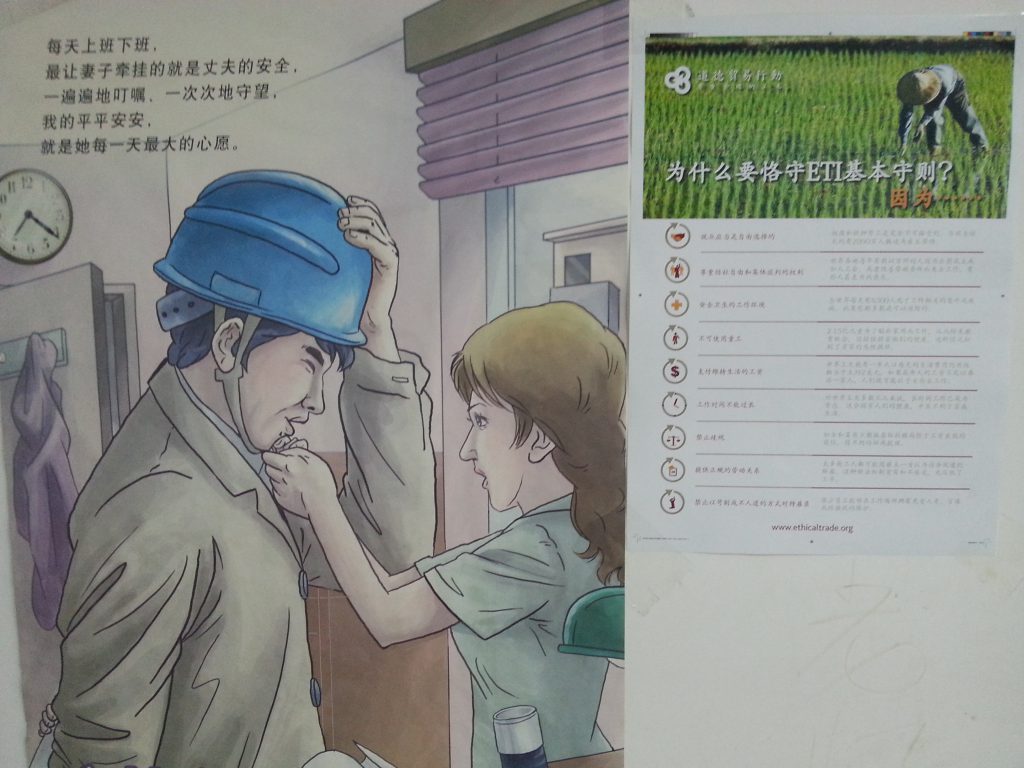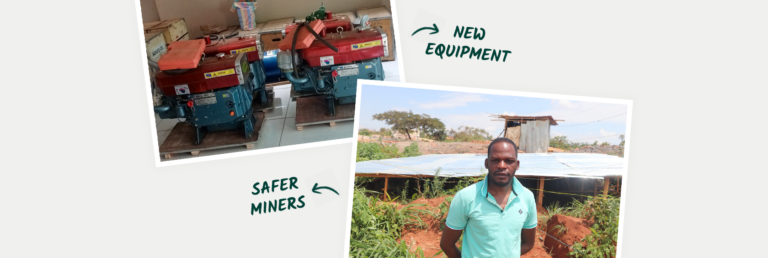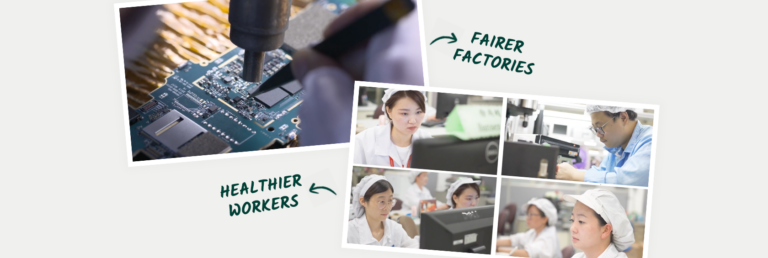Social Responsibility: Introducing TAOS Network
Editor’s Note: At this point in our production process, Fairphone has chosen an independent, third-party social assessment organization to perform an assessment with our factory, A’Hong. In the following blog post, we’ve asked the founder of TAOS to explain their vision for corporate responsibility as this process is undertaken. In a future post, we’ll go into more detail on any factory improvement plans based on the TAOS assessment at A’Hong.
As our CSO Sean Ansett mentioned in an earlier blog we strongly feel that training and capacity programs are the way forward and an important part of driving long-term change in the supply chain and with our production partners.
I’m often asked by customers and by colleagues: “Why TAOS?” The city in New Mexico, USA where the great painter Georgia O’Keeffe once lived? Or does the name refer to Taoism? To which I reply simply: T as Training, A as Auditing, O as organization, and S as Systems. Yes, that’s TAOS, a grass-roots organization in China that is dedicated to the achievement of social responsibility and sustainable social compliance.
I started TAOS Network in 2006 with the help of an enthusiastic and experienced team. Having worked in the social compliance field for over ten years, I could see the rapid shift in the field from an enforcement model to a recognition that in order to achieve sustainability, the factory management, owners and workers must be enlisted as co-stakeholders if sustainable social compliance was to be achieved at the factory level. Recognizing that such a model implied a long term and step-by-step approach to social compliance as well as an emphasis on training as opposed to individual audits, I decided to leave an NGO based in the United States and return to China where I, with my team, could put to use our diverse skills and expertise to pursue a dream of making a difference on the global assembly line.
My team and I have visited over 800 factories throughout China. Understandably, our team has not always been received positively at the factories. Managers and owners have the responsibility to produce profits and may likely see achieving social compliance as a subtraction from the bottom line. Paying workers the legal overtime (OT) rate and benefits is not an inexpensive practice. What we try to do, then, is to show managers the way systematically to become socially compliant and hopefully, along the way, train all the stakeholders–workers, management, and ownership to adopt cutting-edge systems and innovative organizational strategies to achieve sustainability. Correspondingly, training and assessments cannot become effective remediation tools if there are no effective organizational systems in place at the factory.
Achieving worker participation is of course the crucial step in achieving any sustainable social compliance program. One way we enlist workers to participate in our programs is by interviewing them. Over the past years, the TAOS Network has conducted more than 50 thousand such interviews, and we make sure to include the workers’ individual voices in each of our reports. Further, we have conducted projects that are specifically tailored to enlist the workers as stakeholders. These projects include The Worker Income Survey, Occupational Disease Awareness Building Training Program, Dialog Training Program, HIV/AIDS and TB Awareness Building Training Program, and the Worker Mobile Employee Assistance Program.
Our approach at TAOS is a time consuming and thorough process that requires a recognition on the part of our partners that the appearance of quick results are often not sustainable and not always a reflection of the real conditions on the ground. We make, thereby, as a core part of our mission, to educate our partners to see change as a step-by-step course and to realize further that each factory presents an individual case. We as partners should appreciate the diversity of our factories, our management teams, and of our worker stakeholders. We as social compliance professionals, in other words, need to listen, to make reasonable recommendations based on the feedback of management and workers and thereby, to develop a positive environment where social compliance is seen as a win-win approach.
Now, coming back to our first question, what does that have to do with a painter from New Mexico and with a belief structure born of my Chinese heritage? Well, first Georgia O’Keeffe for me represents a commitment to care and to precision, and I and my team try, as best we can, to present a picture of conditions on the assembly line that are true to the specific environment at the factory. We want also to balance the values of global business with the principles underlying social compliance, to measure the international perspectives on social compliance against the practices of the local culture and to weigh the individual conditions at the factory in regard to the necessarily high standards set by the international brand. Of course, we can only seek the balance of Tao while recognizing that balance occurs in stages; then, try, like I feel O’Keefe attempted, to be realistic in our recommendations and to look at the whole of the circumstances from all the stakeholders’ perspectives. I know this may sound overly idealistic to some; however, myself and my team, have arrived through our separate journeys to believe that without a common dream, it is not possible to do the nitty-gritty work necessary to achieve real progress on the global assembly line.
Fairphone, I know from my conversations with its team, shares the same heightened commitment and passion for promoting a living wage and humane conditions in its supplier factories globally. I very much appreciate the chance to partner with Fairphone to make a smart phone that “goes green and goes clean” from the assembly line on and to produce as a team a device for communication and dialog embodying a commitment to raise the quality of life amongst the customers and workers.
Editor’s Note: Follow us and in a future blog post we will share more on the assessment report, discuss any factory improvement plans based on the TAOS assessment at A’Hong and show how you through your purchase are participating with positive changes on the factory floor.



